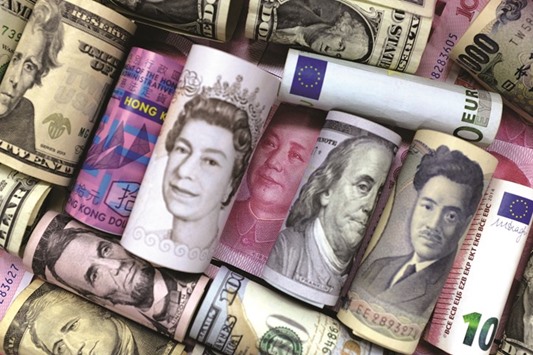Capital outflows from China are moderating as the yuan steadies, the country’s foreign regulator said yesterday, as data showed less foreign exchange selling by commercial banks in February.
China’s commercial banks sold a net $33.9bn of foreign exchange in February, down from $54.4bn in January, data from the State Administration of Foreign Exchange showed.
Earlier data showed net foreign exchange sales by China’s central bank fell sharply to 227.9bn yuan ($35.1bn) in February from January’s 644.5bn, signalling fewer central bank interventions to support the yuan.
“Changes in the internal and external market environment have eased cross-border outflow pressure,” the regulator said. The yuan was kept basically stable against a basket of currencies last month, dampening firms’ enthusiasm to buy foreign exchange, it said.
China still has sizeable trade surplus and foreign direct investment inflows, while a rush by domestic firms for foreign exchange to pay their foreign debt may have peaked, it said.
Cooling expectations on further interest rate rises by the US Federal Reserve and China’s relatively solid economic growth may also help limit capital outflows, it added.
Analysts believe China’s central bank still faces a tough job stemming capital outflows, especially as the world’s second-largest economy faces persistent downward pressure.
“While some components of the financial outflows will come down and the authorities have leeway to dampen outflows such as foreign lending, we expect overall net financial capital flows to remain significantly negative in the coming months,” Louis Kuijs, head of Asia economics at Oxford Economics in Hong Kong, said in a note.
“China’s FX policy will especially be tested if the US dollar strengthens again globally and it remains to be seen whether the ‘strong CNY’ policy is sustainable without more forceful restrictions on the capital account.”
Capital outflows from China have increased since its surprise devaluation of the yuan last August, and have been fanned by concerns about its economic slowdown and expectations of higher US rates.
That has prompted the central bank to sell dollars in the currency markets to support the yuan and crack down on currency trading that it suspected to be speculation.

Euro, Hong Kong dollar, US dollar, yen, pound and 100 yuan banknotes are seen in this illustration. China’s commercial banks sold a net $33.9bn of foreign exchange in February, down from $54.4bn in January, data from the State Administration of Foreign Exchange showed yesterday.
